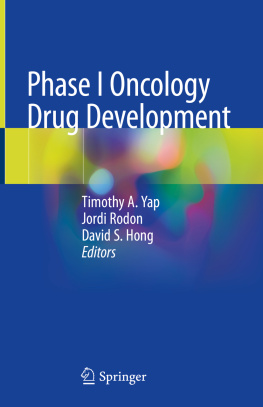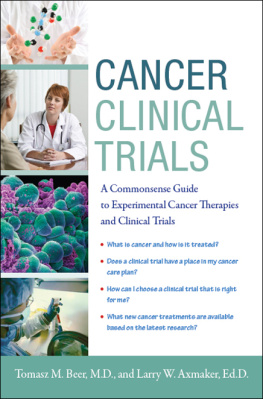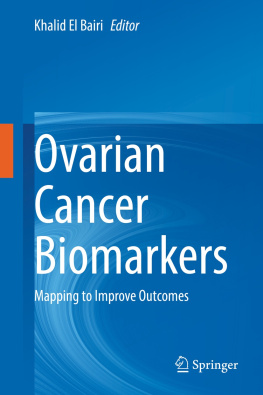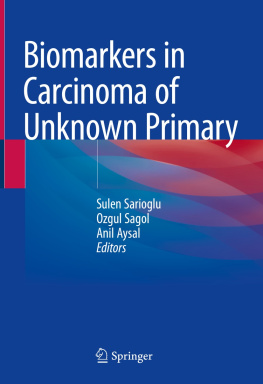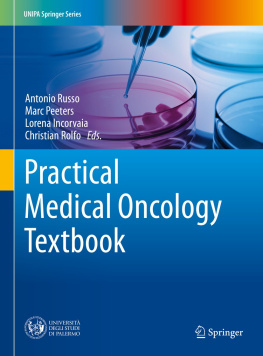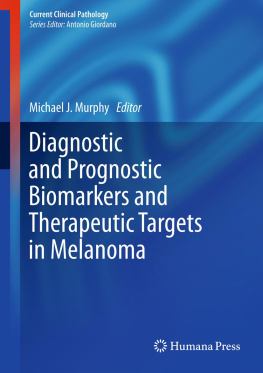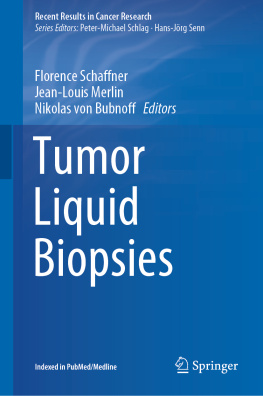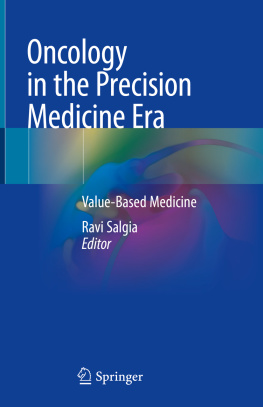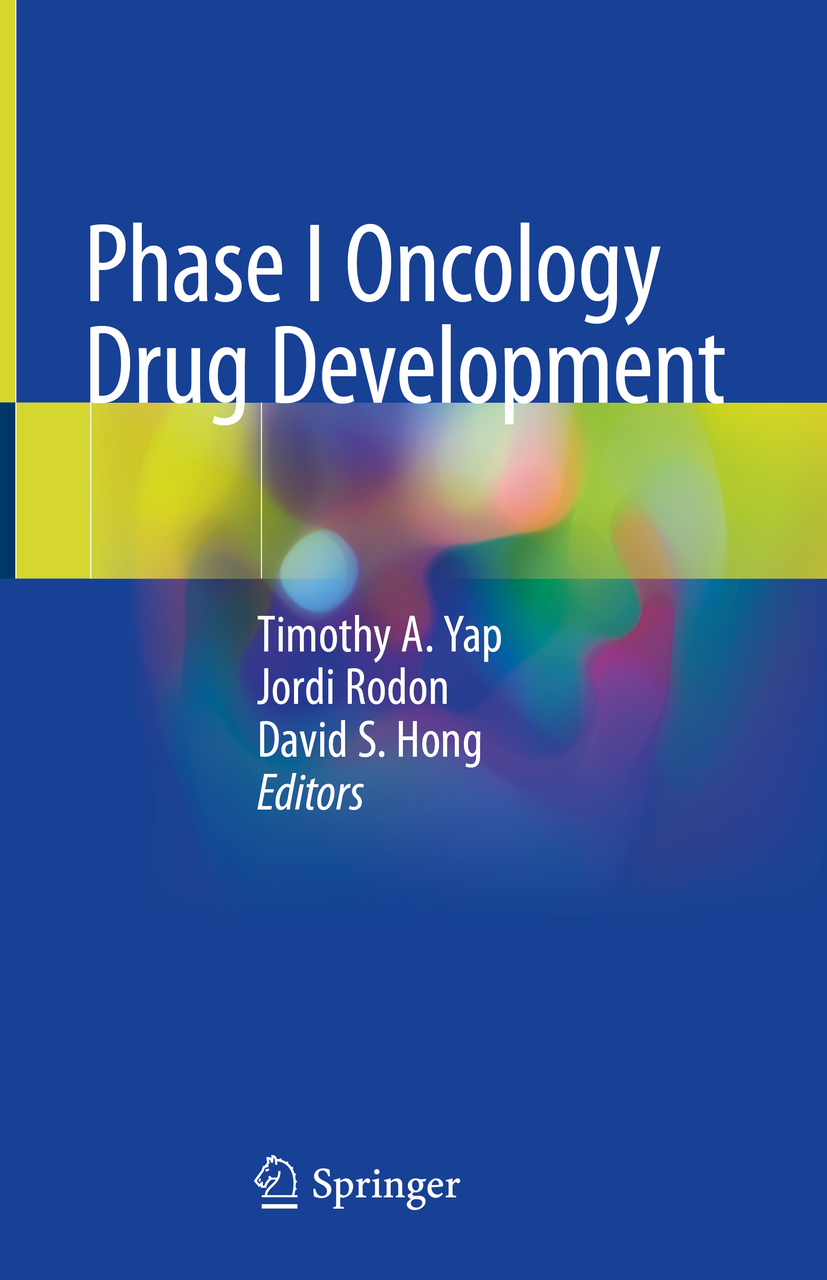Timothy A. Yap (editor) - Phase I Oncology Drug Development
Here you can read online Timothy A. Yap (editor) - Phase I Oncology Drug Development full text of the book (entire story) in english for free. Download pdf and epub, get meaning, cover and reviews about this ebook. year: 2020, publisher: Springer, genre: Romance novel. Description of the work, (preface) as well as reviews are available. Best literature library LitArk.com created for fans of good reading and offers a wide selection of genres:
Romance novel
Science fiction
Adventure
Detective
Science
History
Home and family
Prose
Art
Politics
Computer
Non-fiction
Religion
Business
Children
Humor
Choose a favorite category and find really read worthwhile books. Enjoy immersion in the world of imagination, feel the emotions of the characters or learn something new for yourself, make an fascinating discovery.
- Book:Phase I Oncology Drug Development
- Author:
- Publisher:Springer
- Genre:
- Year:2020
- Rating:5 / 5
- Favourites:Add to favourites
- Your mark:
Phase I Oncology Drug Development: summary, description and annotation
We offer to read an annotation, description, summary or preface (depends on what the author of the book "Phase I Oncology Drug Development" wrote himself). If you haven't found the necessary information about the book — write in the comments, we will try to find it.
This book provides a detailed review of how oncology drug development has changed over the past decade, and serves as a comprehensive guide for the practicalities in setting up phase I trials. The book covers strategies to accelerate the development of novel antitumor compounds from the laboratory to clinical trials and beyond through the use of innovative mechanism-of-action pharmacodynamic biomarkers and pharmacokinetic studies.
The reader will learn about all aspects of modern phase I trial designs, including the incorporation of precision medicine strategies, and approaches for rational patient allocation to novel anticancer therapies. Circulating biomarkers to assess mechanisms of response and resistance are changing the way we are assessing patient selection and are also covered in this book. The development of the different classes of antitumor agents are discussed, including chemotherapy, molecularly targeted agents, immunotherapies and also radiotherapy. The authors also discuss the lessons that the oncology field has learnt from the development of hematology-oncology drugs and how such strategies can be carried over into therapies for solid tumors. There is a dedicated chapter that covers the specialized statistical approaches necessary for phase I trial designs, including novel Bayesian strategies for dose escalation.
This volume is designed to help clinicians better understand phase I clinical trials, but would also be of use to translational researchers (MDs and PhDs), and drug developers from academia and industry interested in cancer drug development. It could also be of use to phase I trial study coordinators, oncology nurses and advanced practice providers. Other health professionals interested in the treatment of cancer will also find this book of great value.
Timothy A. Yap (editor): author's other books
Who wrote Phase I Oncology Drug Development? Find out the surname, the name of the author of the book and a list of all author's works by series.

